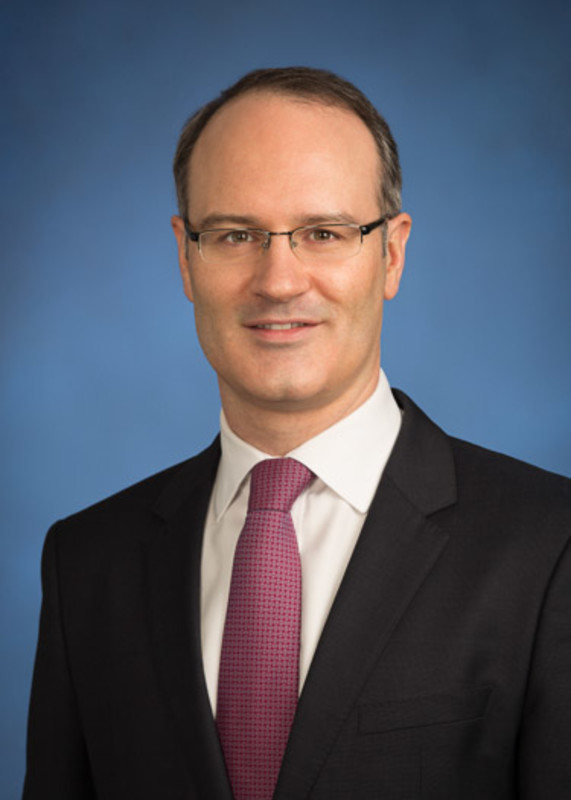
With U.S. stocks having outperformed foreign ones for more than a decade, it might be time to have a look at foreign stocks.
In fact, you should always have an exposure to foreign stocks as part of a diversified portfolio, says Alexis Deladerrière, co-portfolio manager of Goldman Sachs International Equity Income Fund (GSAKX) -).
Related: By the numbers: Quant investor lists top stocks
The fund has annualized returns of 24.42% for the last one year through Sept. 22, 10.22% for the last three years, 6.21% for the last five years, and 4.61% for the last 10 years, according to Morningstar.
That beats 22.62%, 9.37%, 3.16% and 3.16% again for the Morningstar foreign large-cap value stock fund category.
Deladerrière looks for stocks that the fund can hold long-term, that are resilient and that have attractive dividends. Among the industries the fund favors now are infrastructure and clean energy.
Deladerrière shared his thoughts about investing generally and his fund specifically in a chat with Street.com.
Street.com: What’s your investment philosophy?
Deladerrière: We have a concentrated portfolio: 35 to 40 stocks. That’s necessary to be meaningfully different from the benchmark and provide long-term value. We’re bottom-up investors.
We have a long-term horizon – five to seven years for holding stocks. It takes time for the quality of businesses to show through. We also focus on higher quality companies with downside resilience. Protecting the downside is key to long-term success.
We look for our portfolio to have a dividend yield 100 basis points more than the market, which is now about 3.1%. Ours is 4.2%. That’s a sweet spot for sustainable yield. You want your dividend to be attractive tomorrow as well as today and to grow over time.
Resilience is important, as I mentioned. [Our portfolio has declined 8% less than the overall market during downturns.] We also seek continuous capital appreciation, not just today’s yield.

Goldman Sachs
Street.com: What are some investment themes you find attractive now?
Deladerrière: One is listed infrastructure. Unlike in the U.S. a lot of infrastructure overseas is publicly-listed, it’s not government-owned. It includes toll roads, airports, and power generation.
They’re attractive for the resiliency factor. Everybody needs to use them at all times. There’s very little cyclicality. They also offer inflation protection, because the tariffs they charge are typically inflation-linked. The inflation of recent months is good for them.
A second theme: the transition to clean energy is important. It’s especially advanced in Europe. The Ukraine war highlighted Europe’s dependence on Russia for energy.
That has forced Europe to accelerate its [clean] energy transition. The idea has moved from saving the planet to saving their own economies. There has been an increase in investment for the energy transition. More renewable power generation, electric vehicles, etc.
Street.com: Given that foreign stocks have lagged the U.S. for more than 10 years, do you expect foreign markets to outperform the U.S. in coming years?
Deladerrière: It’s hard to call regions. What’s clear is that you need diversification. You can’t focus all your investments on one country. There are more stocks outside the U.S. than inside, so you should have a foreign exposure at all times.
Looking for attractive dividends and resilient stocks that are good for uncertain, volatile environments is a good proposition for investing in foreign markets.
Street.com: Can you discuss three of your favorite stocks?
Deladerrière:
1. Vinci (VCISY) -) of France. It operates toll roads and airports across Europe and Asia. It’s resilient: there’s not much change in traffic during a downturn. It has a 4.5% yield and inflation protection. It’s very well run.
2. Spain’s Iberdrola (IBDSF) -). It’s one of the most advanced utilities in the world for the energy transition. All of its production is low carbon. Spain has an advantage for solar power, giving the company a head start. It has the expertise to expand its asset base.
It’s now one of the largest developers of renewable energy in the world. Utilities tend to have strong resiliency. Power demand doesn’t change. Utilities also are good in inflationary times. And demand for green power continues to grow. The dividend is 5%.
3. UniCredit (UNCRY) -), an Italian bank. For the last 10-15 years, the banking sector struggled in Europe. Banks suffered from low interest rates and re-regulation after the 2008 financial crisis. But things have changed in the last 12 to 18 months.
The interest-rate environment has changed [with rates going higher]. High rates will continue, and that’s favorable for banks. They now have the ability to make money.
They have reached levels of capital at which they’re returning capital [dividends and share buybacks] to shareholders in excess of their earnings. UniCredit has a 6.5% dividend.







